Band & Loop (B & L)
A Band & Loop is routinely used to hold space for a missing baby back tooth until the permanent tooth can grown in.
Call Now: (908) 245-7700
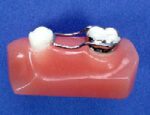
A Band & Loop is routinely used to hold space for a missing baby back tooth until the permanent tooth can grown in.
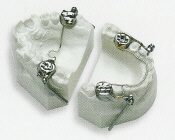
An appliance designed to encourage the lower jaw to grow forward and catch up to upper jaw growth.
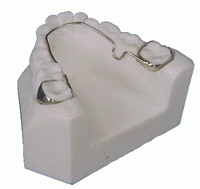
A lower lingual arch is a space maintainer for the lower teeth. It maintains molar positioning and does not move them. It’s by placing bands on the molars and connecting them to a wire that fits up against the inside of the lower teeth. It keeps the molars from migrating forward and prevents them from blocking off the space of teeth that develop later. This is used when baby teeth are lost early, or when lower teeth are slightly crowded in a growing child and you want to avoid removing any permanent teeth to correct the crowding.
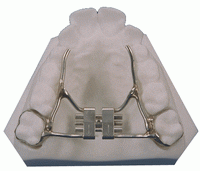
An appliance which is placed in the roof of the mouth to widen the upper dental arch. The maxilla – or upper dental arch – is joined in the center by a joint, which allows it to be painlessly separated and spread. A temporary space may develop between the upper two front teeth. This will slowly go away in a few days. Once this has occurred, the two halves knit back together and new bone fills in the space.
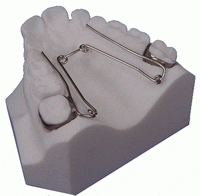
This appliance provides continual, gradual pressure in as many as four directions, to move molars, expand or contract arches, or assist in eliminating finger or thumb sucking habits.
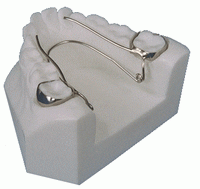
An appliance used to expand the lower arch without interfering with tongue posture or movement.
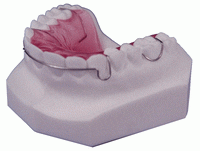
A universally used retainer with many applications; to move teeth, close spaces, maintain alignment during or after treatment.
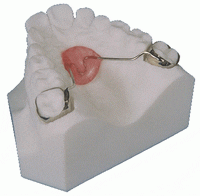
The Nance maintains the position of the maxillary molars without using any other teeth. The plastic button on the palate provides stability.
Upon completion of the active phase of orthodontic treatment, braces are removed and removable appliances called retainers are placed. Teeth must be retained – or held – in their new positions while the tissues and bone, elastic membranes around the roots, the gums, tongue and lips have adapted themselves to the new tooth positions. Teeth can move if they are not retained. It is extremely important to wear your retainer as directed.